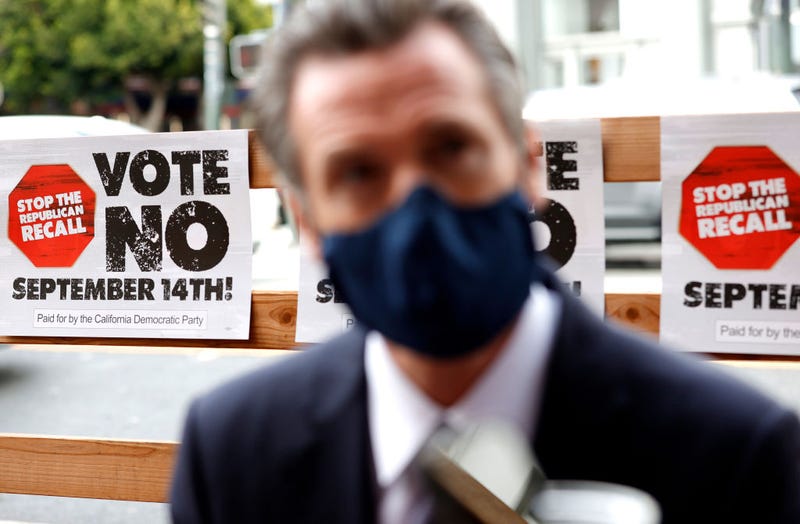
A federal judge rejected a lawsuit arguing the recall of California Gov. Gavin Newsom is unconstitutional. The ruling, handed down Friday, allows for the Sept. 14 election to proceed.
Plaintiffs Rex Julian Beaber and A.W. Clark said that questions on the ballot violated the 14th Amendment of the U.S. Constitution's Equal Protection Clause, alleging supporters of the recall got two choices—whether to approve a recall, and who might replace the governor—while Newsom's supporters only got one.
The ballot first asks voters to approve or reject an overall recall of Newsom. It then asks them to select from a pool of candidates to replace Newsom in the event he is recalled. Voters cannot select Newsom as his own replacement. Theoretically, this could precipitate "plurality lottery" election—a scenario wherein a recall candidate that ultimately receives fewer votes than Newsom can still replace him in the governor's office if a recall is ultimately approved.
“First, as a matter of logic and common sense, it simply is not true that plaintiff only gets to vote once while others get to vote twice," Judge Michael W. Fitzgerald of the U.S. District Court for the Central District of California said in his ruling, according to The Sacramento Bee. "Plaintiff and all California voters have the opportunity to vote two distinct issues. The first is whether the governor should be recalled. Plaintiff and all other voters have the opportunity but not the obligation to vote for a replacement candidate,” he wrote.
Fitzgerald agreed in his ruling that it would be better for Newsom's appointed lieutenant governor were to replace the governor in the event of a successful recall election, “but for over 100 years, California has chosen a different procedure.”
He added that if any voters are concerned that a plurality lottery might elect one of the 46 challengers to Newsom's incumbency, they should simply "vote no" on the ballot's first question.
Plaintiffs have until Sept. 21 to show cause for why Fitzgerald should not issue a summary judgment ruling in favor of the state.
